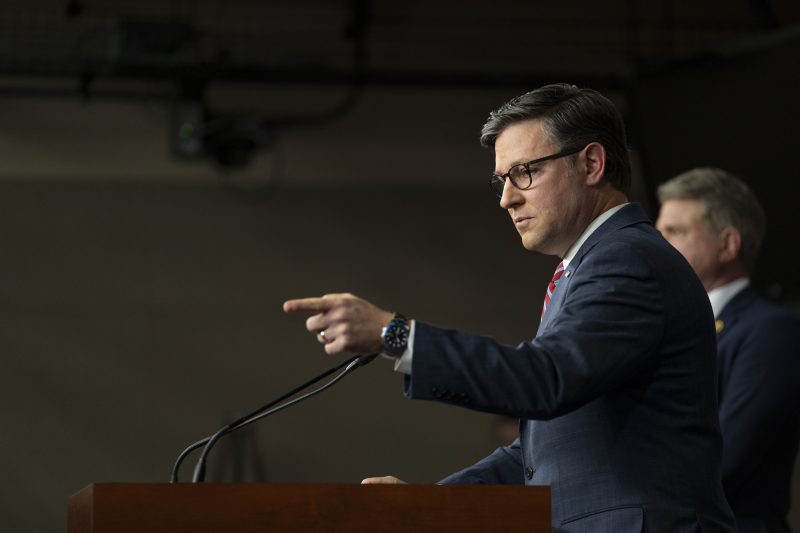House Republicans may be taking a stand on their fiscal principles, but their inability to effectively manage and fund the government continues to be a point of contention. Despite repeated efforts to pass a budget and avoid government shutdowns, the lack of consensus and strategic planning within the party has resulted in ongoing gridlock and financial uncertainty.
One of the key reasons why House Republicans struggle to fund the government is the deeply entrenched divisions within their ranks. With factions ranging from libertarian-leaning members to more traditional conservatives, finding a coherent approach to budgeting becomes a challenging task. The constant internal disagreements and power struggles often overshadow the need for practical solutions, leading to a fragmented front that is ill-equipped to deal with complex budgetary issues.
Furthermore, the rigid adherence to ideological stances, such as demands for heavy spending cuts or staunch opposition to tax increases, can impede the negotiation process and stifle compromise. In a political climate where bipartisanship is increasingly rare, the uncompromising attitudes held by some House Republicans serve to further exacerbate the funding impasse.
Another factor contributing to the funding dilemma faced by House Republicans is the influence of special interest groups and lobbyists. The significant role that money plays in politics can sway decision-making and priorities, leading some lawmakers to prioritize the interests of donors over the needs of the general public. This external pressure can make it challenging for House Republicans to make decisions that align with the broader interests of their constituents.
Moreover, the lack of a coherent long-term strategy for government funding only serves to perpetuate the cycle of budget crises. Short-term measures and stopgap funding bills may provide temporary relief but fail to address the underlying structural issues that contribute to recurring budget showdowns. Without a comprehensive and forward-looking approach to budgeting, House Republicans will continue to struggle with managing the government’s finances effectively.
In conclusion, the challenges faced by House Republicans in funding the government stem from a combination of internal divisions, ideological rigidity, external influences, and the absence of a cohesive long-term strategy. Overcoming these obstacles will require a commitment to compromise, a focus on the public good, and a dedication to sound fiscal management. Only by addressing these fundamental issues can House Republicans hope to break the cycle of budgetary gridlock and steer the government towards a more stable and sustainable financial future.


























